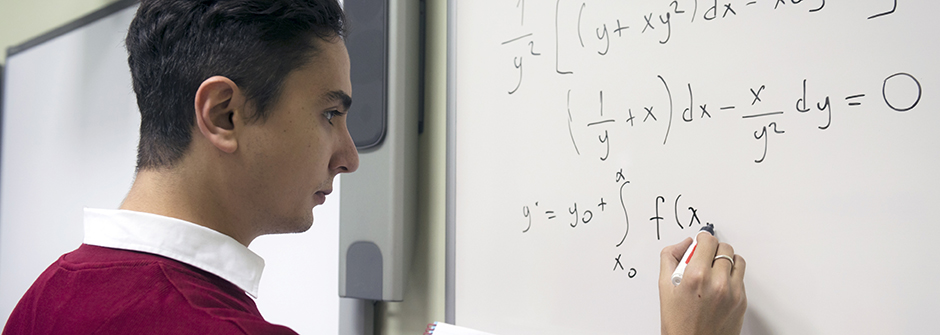
B.S. Math Program Student Learning Outcomes
- Knowledge of Problem Solving. Students know, understand and apply the process of mathematical problem solving.
- Knowledge of Reasoning and Proof, Students reason, construct, and evaluate mathematical arguments and develop as appreciation for mathematical rigor and inquiry.
- Knowledge of Mathematical Communication. Students communicate their mathematical thinking orally and in writing to peers, faculty and others.
- Knowledge of Mathematical Connections. Students recognize, use, and make connections between and among mathematical ideas and in contexts outside mathematics to build mathematical understanding.
- Knowledge of Technology. Students can employ technology appropriately for doing mathematics.
- Knowledge of Number and Operations. Students demonstrate computational proficiency, including a conceptual understanding of numbers, ways of representing number, relationships among number and number systems, and the meaning of operations.
- Knowledge of Algebra. Students demonstrate a computational and conceptual understanding of the axiomatic structure of vector spaces, groups, rings and fields.
- Knowledge of Geometries. Students use spatial visualization and geometric modeling to explore and analyze geometric shapes, structures, and their properties.
- Knowledge of Analysis. Students demonstrate a computational and conceptual understanding of limit, continuity, differentiation, and integration and gain a thorough background in techniques and application of analysis and the mathematical idea of the infinite.
- Knowledge of Discrete Mathematics. Students apply the fundamental ideas of discrete mathematics in the formulation and solution of problems.
- Knowledge of Data Analysis, Statistics and Probability. Students demonstrate an understanding of concepts and practices related to data analysis, statistics, and probability.
- (For the Financial Math major only) Knowledge and understanding of financial/business content.

